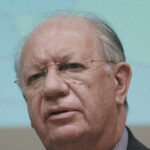They held meetings with Prime Minister Lamothe, Senate President Desras, Senate Vice-President Riché Andris, the Apostolic Archbishop Auza, Haitian Episcopal Conference’s Permanent Secretary Mgr Han’s Alexandre, members of the Monitoring Committee of the El Rancho Agreement, UNDP Director Sophie de Caen, Fanmi Lavalas General Coordinator Maryse Narcisse, Fusion General Coordinator Edmonde Beauzile, OPL Coordinator Sauveur Pierre-Etienne, Kontra Pep La Coordinator Senator Jean William Jeanty, as well as other political leaders and representatives of the private sector and civil society.
Created with Admarket’s flickrSLiDR.
Different issues were addressed, both short term such as the prerequisites needed in order to build general confidence in the forthcoming elections too long delayed, and long term such as the need to continue national dialogue in order to take it to a next stage, addressing the country long term vision and the incomplete Constitutional reform.
In this mission, the Club de Madrid advocated for more national dialogue based on the lessons learned from the first phase, and offered technical and methodological support if deemed necessary by the Episcopal Conference for a second phase. Club de Madrid explicitly supported the Inter-Haitian dialogue process, as this is the first time ever such a process has taken place among Haitians only and under the mediation of a moral authority such as the Episcopal Conference. All players seem to agree on the need to resume inclusive dialogue as the best means available for deescalating tensions.
Concerning the electoral process, the Club de Madrid expressed that elections must be transparent, inclusive and free, and need to take place before the end of the year so as to avoid a governance crisis scenario without a Parliament in place as of January. The Club de Madrid also highlighted the importance of ensuring a credible and independent Electoral Council whose members could be appointed on a consensus basis, and for the Senate to vote the Electoral Law amendments with which all parties seem to agree. All players made the case for “good elections” to be held in 2014.
The Club de Madrid encouraged the country’s key players to seek negotiated political solutions, responsible, moderate and pragmatic, so as to prevent pre and post electoral crisis that could threaten political stability and investments.


